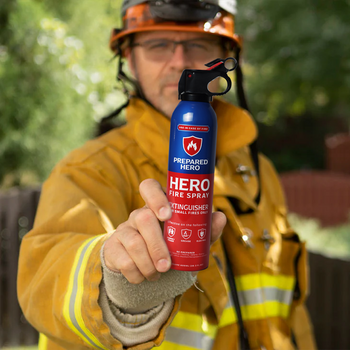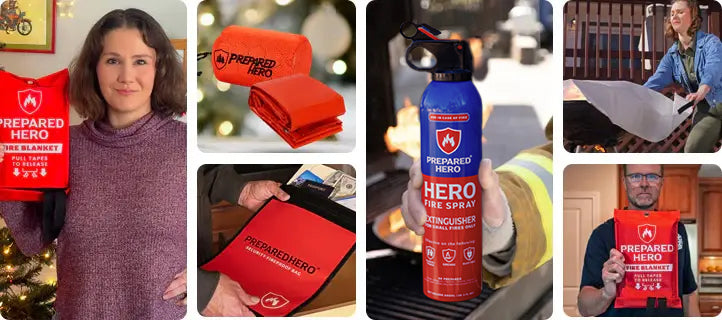Where you put your smoke detectors matters just as much as installing them. Proper placement makes sure they can detect...
A report by the National Fire Protection states that fire departments respond to an average of 46,700 electrical home fires each year. These fires cause $1.5 billion in direct property damage.
Electrical fires are trickier than other types of fire because they can hide behind walls and ceilings. Fortunately, you can identify them even when they’re hidden because there’s a distinct smell associated with them.
In this guide, we’ll answer the question: what does an electrical fire smell like? We’ll also cover what causes them, other warning signs, what to do when you smell an electrical fire, and how to prevent them.
What Causes Electrical Fires?

Electrical fires can be life-threatening and can happen when you least expect it. To help keep your home safe, you should understand what can cause these fires. Here are the common culprits behind electrical fires:
Damaged Wiring
Wires wear out, fray, or loosen over time, especially if they’re old or constantly exposed to moisture. When these happen, electricity will struggle to pass through. As a result, the wires produce sparks that can ignite nearby materials. While many think that damaged wires are a minor problem, the danger is real—they can cause sparks that spread quickly through your home, often without you noticing until it’s too late. In worse cases, the fire can occur behind walls and ceilings, which are harder to detect. For example, having old, exposed wires in your house might spark and start an electrical or Class C fire.
Malfunctioning Appliances
Appliances like toasters and microwaves are everyday fire hazards you should be careful of. Faulty appliances can short-circuit or overheat and result in sparks or excessive heat that might ignite something nearby. The scary part is electrical fires can start when you’re using the appliance or even when it’s just sitting there. For instance, a toaster that’s malfunctioning can ignite crumbs or a nearby cleaning rag.
Overloaded Outlets
Many people like plugging too many appliances and gadgets into one outlet. Exceeding the outlet’s capacity can generate a lot of heat. If that heat builds up, it can burn nearby flammable materials or damage the wiring. The risk here is that these overloaded circuits can lead to sudden electrical fires, often without warning. For instance, plugging a toaster, microwave, and coffee maker into the same outlet can lead to an electrical fire out of the blue.
Overusing Power Strips
Permanently using extension cords or power strips instead of proper wiring is risky. They can heat up and burn nearby materials if you abuse or install them improperly. The danger is that these fires can spread quickly, especially if the power strips are hidden behind furniture. For example, overloading an extension cord in your home office might cause it to melt, spark, and burn nearby paper or fabrics.
Faulty Outlets and Switches
Outlets and switches can wear out over time and lead to huge electrical problems. They can cause arcing, where electricity jumps and creates sparks and heat. The problem here is that faulty outlets and switches can start fires without physical notice. For instance, plugging your game console into a worn-out outlet can ignite the insulation behind your wall and start a fire.
Defective Lighting
Lights don’t use a lot of electricity, but they pose fire risks when they’re faulty. Using powerful bulbs that are malfunctioning or improperly wired can ignite nearby flammable materials. For example, bulbs exceeding the recommended wattage can overheat and burn the lamp or chandelier.
What Does an Electrical Fire Smell Like?

Knowing what an electrical fire smells can save lives. Different smells can warn you of issues with your wiring or appliances, and it’s important to catch them early. Here’s what an electrical fire smells like:
Burning Plastic
When wires burn, you’ll first smell the acrid chemical odor of burning plastic. The wire insulation usually burns first, so the smell of burning plastic means the fire has accelerated.
If you can locate the affected area, safely turn off the power, and put out the fire using a fire spray or extinguisher, do so. Otherwise, leave your house and call the fire department immediately.
Burning Rubber
Smelling burning rubber usually means something is wrong with your electrical system. This smell usually comes from overheating wires or melting insulation. The smell can be pungent, and it’s important to take it seriously.
If you catch this smell, check your appliances and outlets to see if anything looks off—like exposed or frayed wires. If you can locate the source, unplug the appliance or gadget only if it’s safe. You can also turn off the breaker to cut off the power supply. But if the smell lingers or gets stronger, don’t hesitate to call the fire department. Remember, it’s always better to be safe than sorry.
Fishy Scents
That unexplainable fishy smell might mean that an electrical fire is starting. As wiring insulation begins to melt (but not burn yet), many people encounter fishy smells rather than rubber or plastic ones.
Again, if you can’t identify where it’s coming from, turn off the breakers and call the fire department. But if you can locate the problem, turn off the power supply and put out the fire using a fire blanket, fire spray, or fire extinguisher. Then, call an electrician to see the root cause of the problem and fix it.
Are Electrical Fires Toxic?

Yes, electrical fires are toxic because burning wires, cables, appliances, or gadgets release chemicals that can harm you. When an electrical fire occurs, plastic or rubber insulation burns. The excess heat then ignites nearby items like paper, fabric, and wood. As these materials burn, they release different chemicals into the air. These chemicals include carbon monoxide, hydrogen chloride, and hydrogen cyanide.
Carbon monoxide is a colorless, odorless, and tasteless gas. Exposure to excessive levels of this gas leads to carbon monoxide toxicity, which causes headaches, weakness, dizziness, nausea, irregular heartbeats, and difficulty breathing. Victims are usually unconscious before being poisoned.
Another toxic chemical released by electrical fires is hydrogen chloride. Inhaling it can cause eye, nose, and respiratory inflammation. Meanwhile, hydrogen cyanide mixes well with air and can lead to explosions. Inhaling it can cause headaches, nausea, vomiting, palpitations, and shortness of breath.
Other Signs of Electrical Fires

Aside from bad smells, there are other signs that indicate an electrical fire. These signs help you determine whether there’s a budding electrical fire hiding behind walls or ceilings. Here are the common warning signs of electrical fires:
Tripping Circuit Breakers
A circuit breaker automatically shuts off electricity when overloaded to prevent an electrical fire. While a circuit breaker may occasionally trip because of unstable power, a breaker that trips for no reason may indicate an electrical fire. It’s also a serious sign that wires or circuits are overloaded and need to be fixed by an electrician. Ignoring this puts everyone at risk, so it’s better to call an electrician to check things out, especially if it happens frequently.
Flickering Lights
Flickering lights also pose an electrical fire risk. When lights flicker or produce low buzzing sounds, you might have faulty wiring or overloaded circuits. These can lead to electrical fires that are hard to detect because they occur behind ceilings, making them hard to spot until it’s too late. If you notice this happening, call in a professional immediately. Ignoring flickering lights might leave you in the dark—literally and figuratively.
Charred Outlets
Charred outlets mean a small electrical fire has already occurred, or the outlet is too hot. Watch out for discoloration or heat marks. Both are clear signs that your house is at risk of an electrical fire. So, check your outlets regularly and don’t use those that look damaged. If you notice any signs of charring, unplug everything and call an electrician immediately.
Noticeable Sparks
When you plug something in, the outlet sparks sometimes. However, these occasional small sparks are normal. However, frequent, large, or smelly sparks indicate that an electrical fire might be brewing. So, pay attention to how often sparks happen. If it’s more than just the occasional small spark, unplug the device and call an electrician right away. Remember, ignoring these signs puts your home at risk.
What to Do When You Smell an Electrical Fire

Knowing what to do when you smell an electrical fire makes a huge difference. From identifying where the smell comes from to putting the fire out, it’s all about staying safe and smart. Here’s what to do when you smell an electrical fire:
Determine Where It’s Coming From
When you smell an electrical fire, figure out where it’s coming from. Is it a specific appliance, or is the smell more widespread? Do you smell it behind the walls? Is it coming from the ceiling?
Check around your home or workplace for any signs of smoke or flames. Then, look for flickering lights, burning smells, or sizzling sounds. If you see smoke, don’t panic and proceed to the next step.
Unplug or Power Off Electricity Where Possible
If you can identify the source of the fire and it’s safe, unplug whatever’s causing it or turn off the breaker immediately. Cutting the power helps stop the electrical fire from getting worse. If the flames are huge or you can’t reach the appliance, turn off the electricity for the whole area or building. Always prioritize your safety—if it feels too risky, don’t try to unplug or turn off anything.
Use a Fire Blanket, Fire Spray, or Fire Extinguisher
Once you’ve cut the power, try to put the fire out if it’s small. You can use a fire blanket, fire spray, or fire extinguisher. Make sure to leave the fire blanket on until the fire is completely out, or aim the fire spray or extinguisher at the base of the fire. Learn how to use a fire blanket and how to use a fire spray here.
If in Doubt, Evacuate and Call for Help
If you feel unsafe or the fire is spreading fast, evacuate your house and call for help. You can replace material things, but not your loved ones’ lives. Plus, firefighters are trained to deal with electrical fires and have the right equipment to put them out safely.
Remember, it’s always better to be safe than sorry. Every situation is different, and trusting your instincts is key. If you think you can handle the fire, go for it. But never take unnecessary risks, especially when the fire is spreading fast.
Electrical Fire Prevention Tips

You can prevent electrical fires with some simple habits and precautions. From unplugging your appliances to checking your outlets, these tips keep your family or co-workers safe. Here are some electrical fire prevention tips to keep in mind:
Appliances
- Always plug major appliances, like refrigerators, stoves, ovens, and washers, directly into a wall outlet.
- Never use a power strip or an extension cord with a major appliance. It can easily overheat and start an electrical fire.
- Unplug small appliances, such as blenders and hair dryers, when not in use.
Lights
- Keep lamps, light fixtures, and bulbs away from anything that can burn.
- Use bulbs that match the lamp fixture’s recommended wattage.
Outlets
- Don’t overload wall outlets.
- Fully insert plugs into sockets.
- Don’t force a three-prong cord into a two-slot outlet.
- Use tamper-resistant electrical outlets if you have children at home.
Extension Cords or Power Strips
- Throw worn, old, or damaged extension cords right away. Don’t try to repair them.
- Don’t use extension cords or power strips permanently.
- Don’t place extension cords where they can be damaged, like under a rug or carpet.
- Don’t overload power strips.
- Use extension cords that have internal overload protection.
How Long Does an Electrical Fire Take to Start?

Electrical fires can ignite almost instantly, take months to develop, or fall somewhere in between. How long electrical fires take to start greatly depends on the circumstances and conditions involved.
For one, an electric arc can occur in seconds when there’s a short circuit or a loose connection. And within a few minutes, the scenario can change. For instance, if an electric tips over onto a carpet, it can generate enough heat to ignite the fabric. This quick transition from a safe appliance to a fire hazard shows that electrical fires can take seconds or minutes to start.
Electrical fires can also take hours to start. For example, an overloaded electrical cord may heat up as it struggles to carry more power than it was designed for. If this cord is near curtains, it can gradually heat them up until they reach their ignition point.
Then there are the longer timelines—days, months, or even years. For example, a damaged wire that runs along a wooden beam may not show immediate signs of trouble. However, the wire can char and smolder the wood over time and slowly weaken its structural integrity. Eventually, this hidden damage could lead to a serious fire.
Understanding how quickly electrical fires start highlights the need for regular inspections and proper maintenance. By staying vigilant and fixing minor issues right away, you stop electrical fires from progressing.
Is There a Smell Before an Electrical Fire?

Yes, there often is a smell before an electrical fire starts. The odor smells fishy or like burnt plastic and rubber. Depending on the size of the electrical fire, the smell can be weak or strong. But it’s definitely out of the ordinary, so if you notice something weird, take a look at where it’s coming from.
The smell usually comes from overheated wires or components. As the wiring begins to fail or short-circuit, it can produce heat that damages the insulation around the wires. This damage leads to that weird smell. You might also catch a whiff if an appliance is malfunctioning or if a circuit is overloaded.
If you notice this smell, don’t ignore it. It’s a sign that something is wrong, and you should check for the presence of an electrical fire. If you can’t find the source or if the smell persists, call for professional help immediately. Trust your nose because it can help prevent a fire.
How Do I Know If There Is an Electrical Fire?

Knowing if there’s an electrical fire can be tricky, but there are some clear signs to look out for. First, pay attention to any strange smells. If you notice a fishy or burnt plastic and rubber smell, something might be burning.
Next, keep an eye out for visual cues. Smoke coming from outlets, appliances, or even walls is a red flag. If you see actual flames or sparks, don’t hesitate to grab your tools or call for help immediately.
Another sign to watch out for is flickering lights. If your lights dim or flicker frequently, you probably have an electrical problem. Don’t neglect warm or discolored outlets as well. If they feel hot to the touch or if you see scorch marks around them, get to the root cause right away. Listen for unusual sounds, too. Buzzing, crackling, or popping noises from outlets or devices mean trouble is brewing.
What Is the Sudden Smell of Electrical Wires Burning?

The sudden smell of electrical wires burning is a distinct fishy or burnt plastic and rubber smell. It can be sharp and acrid, making it hard to ignore. This smell is usually produced when electrical wires or components overheat because of damage, overload, or malfunction.
When insulation around wires gets too hot, it begins to break down and emit a burning smell. You might notice it near outlets, appliances, or light fixtures. Sometimes, the odor can be faint at first. But if left unchecked, it becomes stronger and more alarming.
Other signs, such as flickering lights, hot devices, or unusual buzzing or crackling sounds, can also accompany this smell. If you smell this weird odor, take it seriously. It clearly indicates that something isn’t right and needs immediate attention. Always trust your instincts—if it smells off, it’s worth investigating.
Should I Call the Fire Department if I Smell an Electrical Fire?

The short answer is yes—if you smell something burning and can’t figure out where it’s coming from, call for help.
Electrical fires can start quickly and escalate fast, so don’t ignore any warning signs. If the smell is strong or persistent, don’t hesitate. Grab your phone and call the fire department. They’re trained to handle these situations and can check your home for potential electrical fires.
While you wait for them to arrive, make sure everyone is safe. If you’re in the house alone, get out and stay at a safe distance. If you can safely unplug any appliances or devices you think might be causing the smell, do it. But if it feels risky, just get out and let the professionals handle it. Remember, it’s always better to be cautious. Even if it turns out to be a false alarm, you’ll feel better knowing you took the right steps.
Conclusion
Knowing what an electrical fire smells like and how to respond to it keeps your home safe. Whether it’s the acrid scent of burning plastic or that unusual fishy odor, these smells are important warning signs. By being aware of the common causes of electrical fires and taking preventive measures, you can reduce the risks significantly. Remember, if you ever suspect there’s an electrical fire, trust your instincts.
Do you want reliable, easy-to-use, and affordable tools that prevent electrical fires? Check out Prepared Hero’s fire prevention tools here, and get up to 51% off on certain items. Stay prepared, hero!


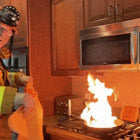 Fire
Fire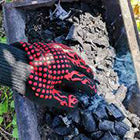 Safety
Safety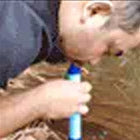 Survival
Survival Protection
Protection New
New
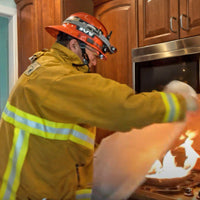 Fire
Fire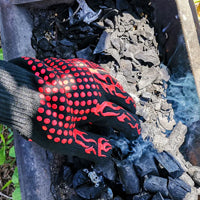 Safety
Safety Survival
Survival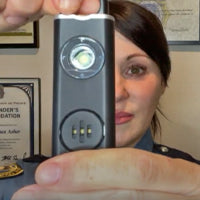 Protection
Protection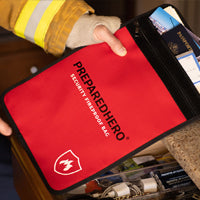 New
New



